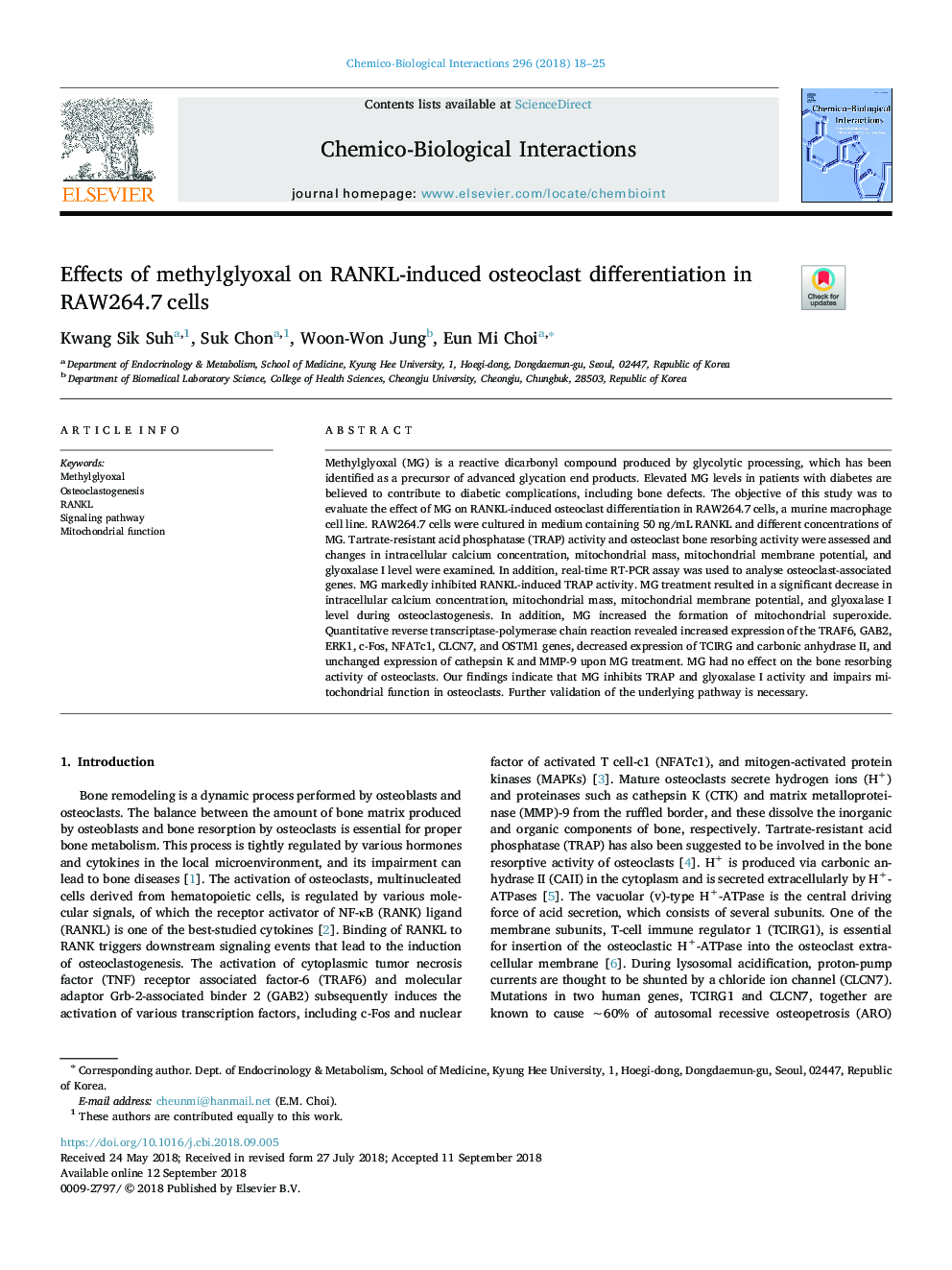| Article ID | Journal | Published Year | Pages | File Type |
|---|---|---|---|---|
| 10158607 | Chemico-Biological Interactions | 2018 | 8 Pages |
Abstract
Methylglyoxal (MG) is a reactive dicarbonyl compound produced by glycolytic processing, which has been identified as a precursor of advanced glycation end products. Elevated MG levels in patients with diabetes are believed to contribute to diabetic complications, including bone defects. The objective of this study was to evaluate the effect of MG on RANKL-induced osteoclast differentiation in RAW264.7â¯cells, a murine macrophage cell line. RAW264.7â¯cells were cultured in medium containing 50â¯ng/mL RANKL and different concentrations of MG. Tartrate-resistant acid phosphatase (TRAP) activity and osteoclast bone resorbing activity were assessed and changes in intracellular calcium concentration, mitochondrial mass, mitochondrial membrane potential, and glyoxalase I level were examined. In addition, real-time RT-PCR assay was used to analyse osteoclast-associated genes. MG markedly inhibited RANKL-induced TRAP activity. MG treatment resulted in a significant decrease in intracellular calcium concentration, mitochondrial mass, mitochondrial membrane potential, and glyoxalase I level during osteoclastogenesis. In addition, MG increased the formation of mitochondrial superoxide. Quantitative reverse transcriptase-polymerase chain reaction revealed increased expression of the TRAF6, GAB2, ERK1, c-Fos, NFATc1, CLCN7, and OSTM1 genes, decreased expression of TCIRG and carbonic anhydrase II, and unchanged expression of cathepsin K and MMP-9 upon MG treatment. MG had no effect on the bone resorbing activity of osteoclasts. Our findings indicate that MG inhibits TRAP and glyoxalase I activity and impairs mitochondrial function in osteoclasts. Further validation of the underlying pathway is necessary.
Related Topics
Life Sciences
Environmental Science
Health, Toxicology and Mutagenesis
Authors
Kwang Sik Suh, Suk Chon, Woon-Won Jung, Eun Mi Choi,
